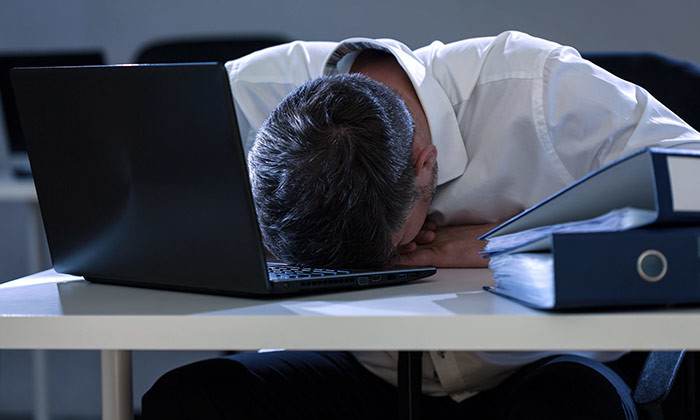Depression in the workplace
Depression is a very commonly used term, by which we mean from a transient malaise to a severe mental condition that prevents a person from functioning normally in life. Depression, however, is a state of learned helplessness. The causes of depression at work can be different. But most often it is poisoned interpersonal relationships that affect the efficiency and productivity of the whole company. And the situation can culminate in litigation, which are additional costs for the company and loss of its reputation.

How it manifests at work?
Depression, in fact, has its own mechanism of occurrence.
For example, at work, it may be about giving a superior person more work than she can do. So she is constantly in a race with deadlines and fails to get to finish the job on time. The person, therefore, tries to prove to the superior that he has more work than the other, to which he replies, for example, that the other colleague who should do so cannot, for some reason, find justification for them, but does not find a solution for the person.
She concludes that there is nothing she can do and becomes moody. But after a while she gets out of the mood. The next time in a similar situation, again trying to solve the problem again fails and becomes ill-tempered again, but again manages to get out of that mental state. The company is then characterized by: bad morals and interpersonal relationships, loss of respect for managers. Also, poor performance, decreased productivity, the bad reputation of the company and even court costs.
Higher motivation leads to an increased sense of well-being. At the same time, improving employee well-being leads to higher levels of motivation. Check how to get motivated for work HERE.

Psychomotor and concentration
A depressed patient may have a stiff posture, without spontaneous movements, looking sideways and downward. Psychomotor slowness manifests as slowed thinking and speech that due to loss of intonation acts monotonously, movements are also slowed down, and sentences are short and scanty. When they come out of the stupor, patients can recall what they experienced during that period. Many depressed patients have difficulty concentrating or have a reduced ability to think. They may feel that they are no longer learning efficiently or scheduling at work and even in daily activities. In severe cases, depressed patients are unable to even watch television. In two-thirds of patients, there are certain disorders of memory and memorization.
Set aside sometime during the morning ahead of your day to centre your thoughts, reclaim your inner peace and come back into balance. Check some positive affirmations HERE.
Back to work
Reducing depressive symptoms can help people with depression get back to work. Treatments include medications and psychological (speech) therapies, or a combination of both. Changes made in the workplace could also help, for example: changing the tasks or working hours of the person in question, support to the person in the gradual return to work or help in better coping with certain situations at work.

